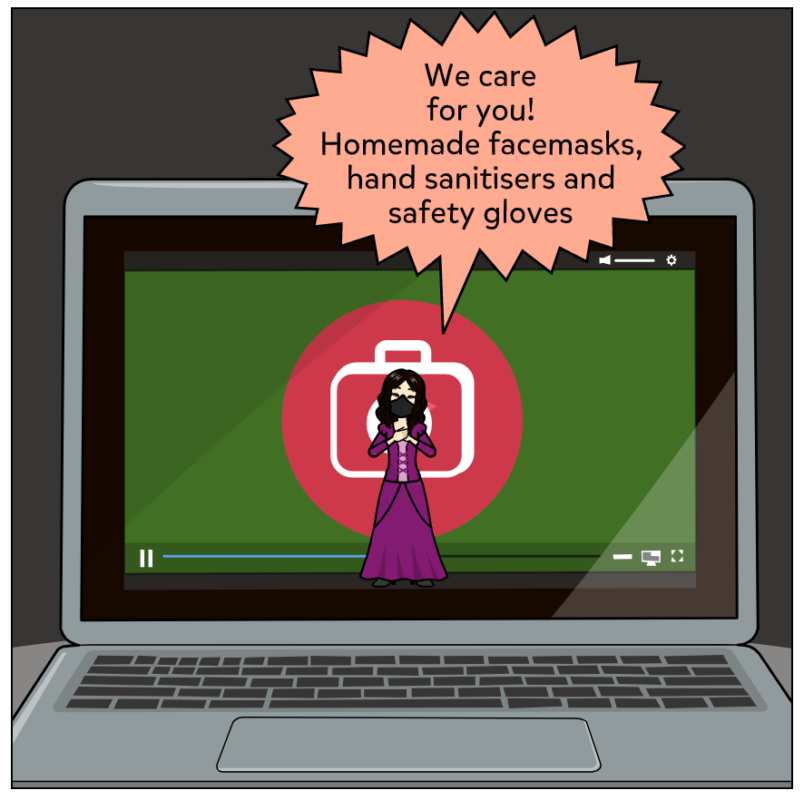
Changes in behaviour as a result of the pandemic – whether the behaviour of individuals, companies or governments, have in turn presented criminals with new opportunities to commit crimes and launder the proceeds. As monitored by Financial Actions Task Force (FATF), changes in the criminal activity, their impact on the money-laundering / counter-terrorist financing regimes, and the measures that governments have implemented to respond to the different types of challenges presented.
International Covid scam involves the sales of counterfeited medical goods or non-delivery scams. In one of the case, an individual posted an advertisement on various e-commerce platforms claiming to have a large quantity of surgical masks and alcohol sanitisers for sale. Within Two months victims purchased these goods locally and paid for them by depositing cash or making electronic fund transfers. The funds collected were deposited into three bank accounts and four e-wallets held by the individual’s spouse and their associates at Hong Kong. Victims reported that they had not received their goods and were unable to get in touch with either of the individuals involved. Investigations revealed that the money was withdrawn quickly after victims deposited it into the designated bank accounts and e-wallets.

As governments’ actions and individuals’ interests have changed over the last six months, the COVID-19 related SMS and email phishing schemes have shifted. These now include emails with fake links to government stimulus packages, banks distributing aid, infection rate maps, and websites selling masks. One jurisdiction reported a case where criminals sent emails threatening not only to divulge personal data of victims, but also to infect them and their families with the coronavirus if they did not pay the criminals.
Fraud through fundraising for fake charities has continued throughout the pandemic. This is a case of old wine in new bottle. In these schemes, scammers contact individuals, misrepresent themselves and seek money for a non-existing charity, or make use of social media platforms to appeal for funds. In some instances, fraudsters have deceived victims by acting as if they were representatives of well- known global charities, and in other instances they have created fake charities.

Medical products have been minting money for the past two years. Investigation found that a French pharmaceutical products company was the victim of a fraud involving false transfer orders. The company had fulfilled an order for surgical masks and hand sanitiser from their usual suppliers, whose identity was stolen through a business email compromise scam. This is in connotation with the identity theft; this modality has been used in the current prevailing scenario. The French company was deceived into transferring a huge amount to a Singapore-based bank account owned by the fraudsters, after which the company neither received the products nor could reach the supplier.
Exploitation of virtual assets: The peak investments happening in the various crypto currencies and sensation around the world at present. During February and March this year, an owner of a health-care products trading company in Hong Kong, China saw internet advertisements posted by several purported sellers of surgical masks and medical equipment, including on a major social media platform. When she attempted to purchase the equipment, she was deceived into transferring HKD 450 000 (USD 58 000) to various bank accounts in Hong Kong, China and an Eastern European country and also into converting the equivalent of HKD 3.96 million (USD 510 000) into Bitcoin. To do so, the victim withdrew cash from her personal bank account and deposited the cash to a designated Bitcoin ATM where the funds were transferred to designated Bitcoin accounts. In total, three banks located in two jurisdictions (Hong Kong, China and an Eastern European jurisdiction) were involved. Five transfers ranging from USD 47,250 to USD 2, 35,830 worth of Bitcoins were transferred to accounts owned by the culprit. All of the scammers stopped responding to the victims after receiving the payment. The investigation is ongoing.

The impacts of the pandemic continue to evolve in the case of money laundering and terrorist financing. Rising unemployment, financial distress, the bankruptcy of companies, the increased circulation of cash in economies, potential stockpiling of cash by organised criminal groups, and the accelerated implementation of stimulus programs represent vulnerabilities that criminals may increasingly exploit over the coming months. Furthermore, as the development of new COVID-19 vaccines accelerate, so too will opportunities for criminals to devise criminal scams to exploit and illegally profit from these new medical advancements. While there are some globally consistent trends, other risks may be specific to particular countries or regions.
However, The FATF will provide further updates and keep monitoring as the impacts significantly evolve. It continues to be critical for jurisdictions, financial institutions, and designated non-financial business and professions to identify, assess, and understand the particular money laundering (ML) and Terrorist Finance (TF) risks they face, and take corresponding mitigating action in line with the FATF Recommendations. Time to be alert!


Leave a Reply